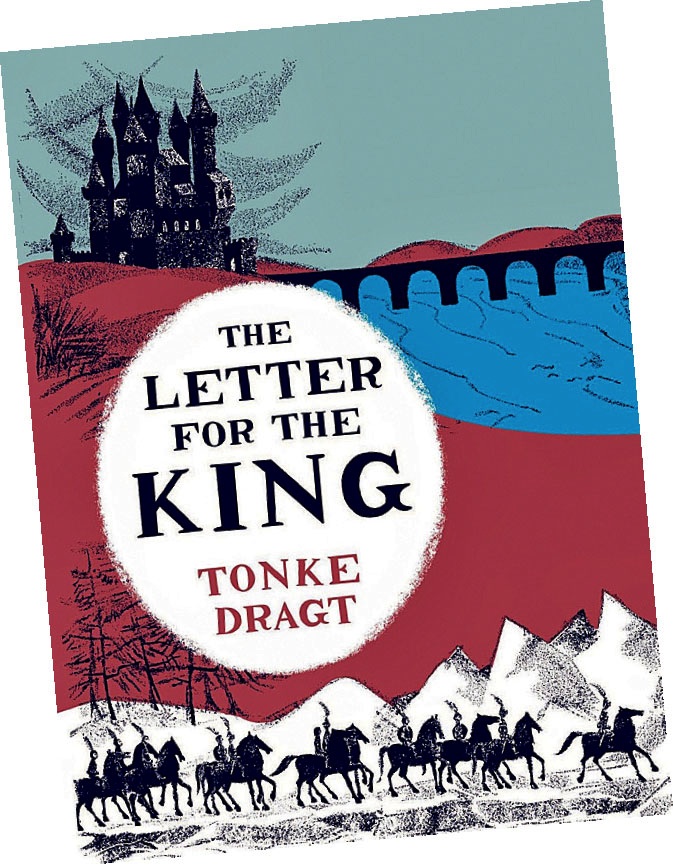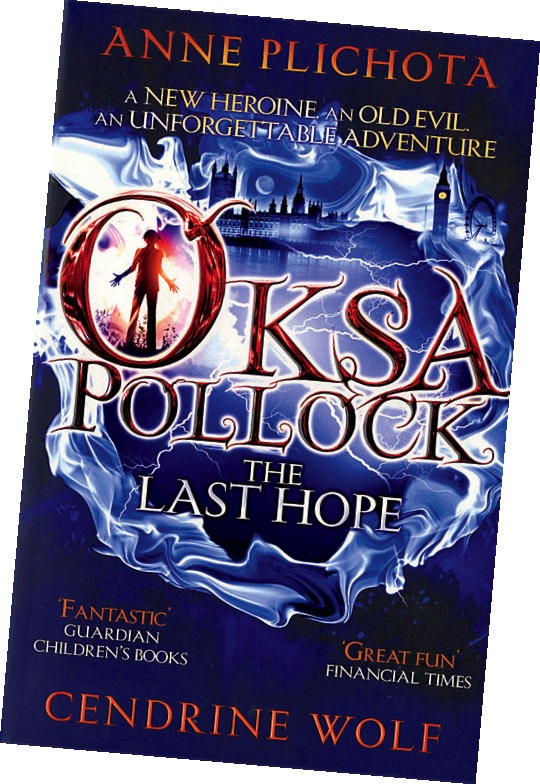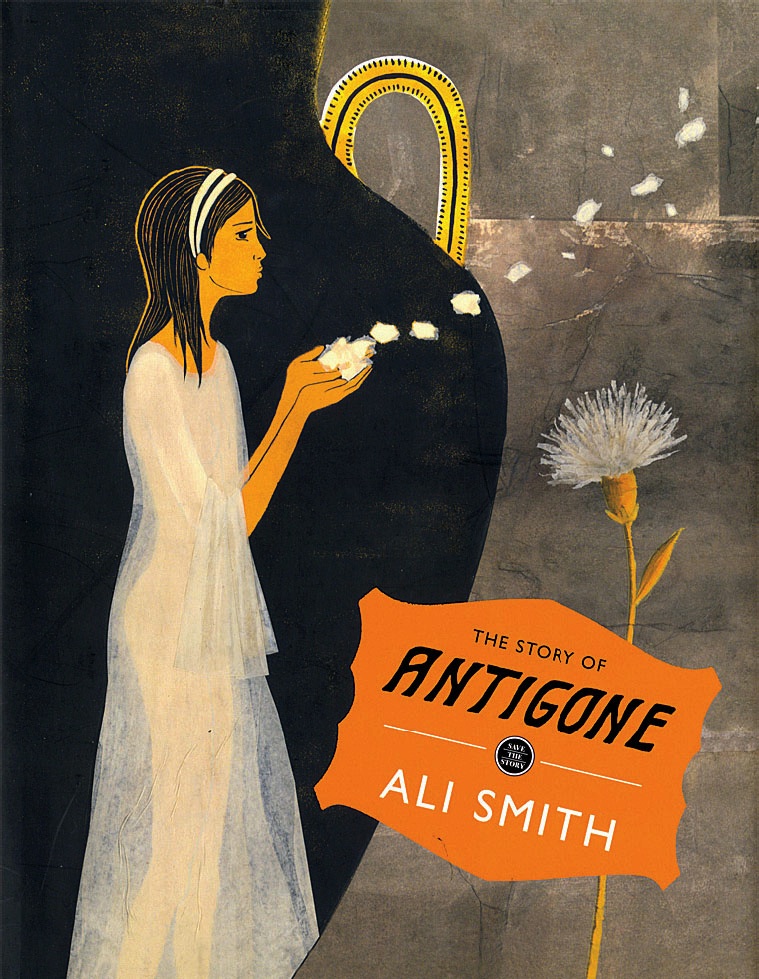Most American kids have probably never heard of Tonke Dragt’s The Letter for the King—a fantasy tale of good and evil, feuding kingdoms, and a questing teenage squire named Tiuri—but for millions of Dutch readers the book is a childhood classic, akin to Charlotte’s Web or The Hobbit. First published in 1962, Dragt’s book had never been made available to English-language readers until Adam Freudenheim ’96, the publisher and managing director of the London-based Pushkin Press and its imprint Pushkin Children’s Books, took on that task and published a new edition last year.

As translator Laura Watkinson finished each chapter, Freudenheim took it home to a highly critical test audience: his two elder children, Susanna and Max (then 10 and 8 respectively). “They’d ask, ‘What’s next?’ And I had to say, ‘I don’t know!’ ” he recalls. Then Watkinson sent the second half of the book in a single chunk. Freudenheim took it home as usual, but found the next morning that Max had stolen the 150 pages in the middle of the night and read it all in one sitting. That, he says, “is when I knew I had a hit.”
The Letter for the King was named a “Book of the Year” by several critics and sold so well, Pushkin has reprinted it several times. More important to Freudenheim is that the book helped fill a gap he has found in the English-language middle-school-aged children’s market. Picture books “have had an incredible renaissance over the past couple decades,” he explains, and young-adult books can be rainmakers for publishers. But pickings are far slimmer for the age group in between. Wary of what he calls the abundance of “me-too” series (hastily written to catch the latest trend), Freudenheim decided to look instead for engaging stories “with a literary appeal” and “children’s writers who are writers, not just writing for children as a cynical marketing exercise.”
The result is an impressive and diverse catalog. The Oksa Pollock fantasy series, written by French librarians Anne Plichota and Cendrine Wolf, stars a plucky 13-year-old who learns that she is not only a witch, but the queen of a magical country. Ali Smith’s The Story of Antigone is a beautiful and thoughtful retelling of Sophocles’s tragedy. Younger audiences might prefer Bernardo Atxaga’s Shola and the Lions, from Spain, about a dog convinced she’s a lion, or the Brazilian story Fuzz McFlops, by Eva Furnari, in which a curmudgeonly rabbit writer just might be badgered into happiness by an unexpected friend.

Pushkin Children’s website says its mission is to “share tales from different languages and cultures with younger readers,” making it extremely rare among publishers. Around 15 to 20 percent of books published in major European languages are works in translation, Freudenheim explains, but less than 5 percent of the books published in English are. “On the children’s side,” he adds, “I’d be surprised if it was 1 percent.”
Freudenheim’s road to this unusual niche in the book business began early. As a high-school student in Washington, D.C., he worked at the Politics and Prose Bookstore; he also spent a year as an exchange student in Germany. At Harvard, he concentrated in German, but gleefully used his electives to rove more widely. “I studied a lot of literature from all over the world,” he says, including Russian and Chinese fiction. “I always feel in a way that what makes a good publisher is being a dilettante—you need to be interested in lots of different things superficially.” He returned to Germany for a year on Harvard’s Shaw Fellowship, then studied for a graduate degree in European literature at the University of Cambridge before embarking on a career in publishing—first for U.K. publisher Granta Books, then working up the ranks at Yale University Press in London.
In 2004, he moved to Penguin Books, where at the age of just 29 he was appointed publisher of the famous Penguin Classics and Modern Classics series. “I was in the right place at the right time with the right mix of skills,” Freudenheim explains: “university press background and knowledgeable about a range of literatures in various languages and with a command of German and French.” The job, he adds, was a natural fit: “a combination of finding new books and commissioning new translations of existing things, anything from Ancient Greece to the 1970s.” He enjoyed significant success in 2009 when he published the first English translation of German novelist Hans Fallada’s Alone in Berlin, the 1947 novel about a quiet German couple who become Nazi resisters after their son is killed in battle. Retitled Every Man Dies Alone in the United States, it sold half a million copies in the U.K. and 250,000 in the U.S.—an enormous hit in literary publishing—and is being adapted as a film.

The experience of finding Alone in Berlin and meeting with European publishers heightened Freudenheim’s awareness of how much fine contemporary literature remains inaccessible and unknown to most Anglophones. By 2012, around the same time he had grown eager to share translated literature with a wider audience, the tiny independent literary publisher Pushkin Press (which already specialized in translations, and was best known for publishing the works of Stefan Zweig) went up for sale. When his purchase of Pushkin was announced, so was his plan to translate more children’s literature. “I got such an incredible response—‘It’s so great that you’re doing this children’s list! There’s so much stuff out there,’” he recalls hearing from publishers and translators. “I felt like my gut instinct was proved right.”
Pushkin Press now has six (rather than two) full-time employees at its office on a quiet street near Covent Garden. It has nearly 200 books in print, translated from 15 different languages; staff members read fluently in four. And upwards of 30 new titles are published each year, across all Pushkin imprints. That includes the new Pushkin Vertigo, which specializes in twentieth-century international crime classics, such as Soji Shimada’s debut mystery The Tokyo Zodiac Murders, released in September.

The press has also introduced Israeli novelist Ayelet Gundar-Goshen and Japanese writer Ryu Murakami, reissued out-of-print works by respected writers like Arthur Schnitzler and Julien Gracq, and helped launch new authors—including Nigerian Chigozie Obioma, whose The Fishermen was short-listed for the 2015 Man Booker Prize.
The children’s books have also earned critical praise—and, like The Letter for the King, have sold unusually well. The U.K. bookstore chain Waterstones chose the first volume of the Oksa Pollock trilogy as its Children’s Book of the Month and The Story of Antigone has done well enough to go into paperback. Freudenheim attributes some of the imprint’s success to the lack of any real wall between the editing of the adult and children’s books: the same editors read the same books in the same room. Pushkin Children’s Books plans to continue releasing 10 to 15 new titles a year—among the newest is the hilariously illustrated Meet at the Ark at Eight! by Ulrich Hub, about spirited penguins rushing to claim their spots on Noah’s Ark. Some of the imprint’s books are distributed to booksellers in North America, and all are available at Pushkin’s website; the rights to other books have been purchased by American publishers (as often happens): The Letter for the King, for instance, is published by Scholastic in the United States.
Freudenheim is pleased with the progress of the children’s imprint. After just two years, those titles account for a third of Pushkin Press’s revenue, despite being far fewer in number than its adult books. “Most of our children’s books are reprinting, some of them multiple times,” he explains, beaming. “There’s really no one doing what we’re doing on the children’s side.”
He has high hopes for Pushkin’s first venture into young-adult fiction, The Red Abbey Chronicles—a prize-winning Finnish fantasy series by Maria Turtschaninoff, to be published early next year. The first volume, Maresi, is “set in an imaginary medieval world where young women live on an island without men,” he explains. “It’s an incredibly powerful story.” Online chatter—all-important—is growing among fantasy fans and advocates for strong female characters in anticipation of the English translation’s publication. Most books ultimately become successful through word-of-mouth, Freudenheim says—a phenomenon difficult to manufacture. Publishing, he says, is fundamentally an art of sharing: writers and publishers send a book out into the world and hope people like it. “That’s the fun of it,” he adds. “Thinking, ‘I love this! Now, how do I get you to love it?’”







